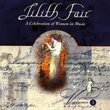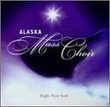| All Artists: Luigi Nono, Lothar Zagrosek, Claudia Barainsky, Helmut Holzapfel, Melinda Liebermann, Markus Marquardt, Mark Munkittrick, Urs Winter, Stella Kleindienst Title: Luigi Nono: Al gran sole carico d'amore Members Wishing: 1 Total Copies: 0 Label: Teldec New Line Release Date: 6/19/2001 Genre: Classical Styles: Opera & Classical Vocal, Historical Periods, Modern, 20th, & 21st Century Number of Discs: 2 SwapaCD Credits: 2 UPC: 685738105922 |
Search - Luigi Nono, Lothar Zagrosek, Claudia Barainsky :: Luigi Nono: Al gran sole carico d'amore
 | Luigi Nono, Lothar Zagrosek, Claudia Barainsky Luigi Nono: Al gran sole carico d'amore Genre: Classical
|
CD DetailsSimilar CDs
|
CD ReviewsLike a grand burgeoning light of love scarecrow | Chicago, Illinois United States | 07/31/2001 (5 out of 5 stars) "historical political imagery has never allowed itself to be a simple task for opera, in fact most avoid the subject and its challenge altogether. The likes of Donizietti and Bellini,if you happen to scan their life work, you'd think both these um-pah composers delved deeply into the quagmire of politics, but alas, all their operas treat their subjects in a one-dimensional, safe complaisant manner.Likewise Meyerbeer who utilized the massacre of the Hugenots as a safe dramatic backdrop, never revealing what the source of embattlement existed,just pure spectacle and memorable song for the Paris Opera. Verdi is a little closer to the integrity of this subject in that the Risorgimento, the unification of Italy was in the streets, and Giuseppe had no choice,but to shrewdly veil his operas as powerful metaphors for the politics occuring around him. It's not until Modest Mussorgsky where we actually see proclaimed the masses,the peasants, the unwashed,the dispossessed as an important integral role within bourgeous opera. In fact he with Stasov devised a means of simplifying the delivery of text, to render it more realistic. 'Khovanchina' and 'Boris Godonuv' are operatic testaments, and even there history needed to be altered ever so slightly at the service of dramatic integrity,and momentum. The 20th Century has seen no shortage of the political subject for opera, in fact the 20th Century turned out to be,to outdo,accelerate and summon the greatest dimensions of evil, the brutality,the terror,genocide,murder,political intrigue,corruption than all of past history. With the work of Luigi Nono we are no longer within the strictures of opera. He wanted nothing to do with logical,predictable telling discourses of stories, or discreet narrative, all realism now,hard facts. He found the work of Meyerhold, and Piscator,as well as Brecht to be his dramatic icons. He has referred to his operas, as 'azione scenica',stage activity,a series of self-contained scenes which is simply drawing from events,utilizing,borrowing songs(not his),poems,documentary evidence and historical fact as his libretti.There is a working montage which Nono had learned from 20th Century drama. That's what this work does, it begins with revolutionary icons, as the Paris Commune of 1871 where the toiling masses actually seized power unfurling red flags throughout the streets.However with the help of foreign bourgeois forces, international troops the seizure was quickly eradicated. This opera then proceeds to the 1905 Russian Revolution with text from Lenin, then including the strikes in Turin in 1950,and Castro's Cuba, and Che Guevara, Vietnam,and Chile.With the image of South Vietnam for instance Nono utilizes the images of three prisoners who represent historical time, Antonio Gramsci(rise of the Left prior to the Second World War), Georgi Dimitrov(Nazi corruption, burning of the Reichstag for which he was blamed) and Fidel Castro(post-war leftism,national struggles),all this is as an elliptical collapsing of time.The loss of the Democratic Movement in 1973 in Chile with the murder of Salvador Allende was a low point for the activism of the Left throughout the world and is also a point in this opera. The political movement in Italy, as all over the globe in the late Sixties, early Seventies was festering, Nono as many artists and intellecturals remained card carrying members of the PCI, the Italian Communist Party,and grudgingly accepted the historical compromise of its leader Enrico Berlinguer,of not recognizing the importance of the Soviet Union.The era of Eurocommunism is the real backdrop of this opera,and is a response/dialogue to that.Recall that Tito had earlier broke with the Kremlin,blocking,or refusing the Russian Mother's Milk , and the Chinese even earlier than that saw the Soviet Union not as a partner,nor as a harbinger for revolution around the globe,but as a self-contained nationalism. The fascinating dramatic feature here is Nono adopts a kinda elliptical frame, where time collapses into an interreferential dramatic points,of present,past,future,present,past, with cogent and meaningful dialogues occuring throughout this opera.So for instance the Russian Revolution is followed by Vietnam. Also the chorus here becomes the voice of individuals representing for instance women guerilla fighters,a Turin prostitute, and artists.,as well as reflecting upon events. The poetry of Louise Michel, a Communard, makes for beautiful settings in the fourth Section of the First part for chorus.However the music overall is rough going,with intermittent slaps from the percussion, and overwhelming walls of brass timbre concluding sections, The fragmentariness of the music makes for difficult listening, Nono wants the situation,the ambience of the drama to be ugly, to be repulsive, this is the height of the expressionist credo.This found its visual equivalent in Yuri Lubimov of the Taganka Theatre in Moscow had done the job of directing. In the original Milan premiere,he has the Communards for instance laying on propped up half way wooden racks, bare torso with huge floodlights bearing down.The stage sometimes is simply lit with flashlights, and stage backdrops are simply bare wooden tablet shaped screens. Nono seems to have abandoned and or accelerated the marvelously powerful compositional means he had developed in such works for orchestra and chorus with soloists as 'Canti d'vita e amore', or 'Canto sospeso', based on Resistance Fighter's letters. Nono had developed the dodecaphonic means into impacted 12 tone clusters, all reiterated in different timbral positions stridently, the effect is like the tension of a suspension bridge pulling at itself inward. Those kinda moments are fragmentized here, Nono opting instead to render the legitimacy to the spoken and sung word, music takes a second function here.Nono in his score includes no stage directions,he after multiple performances simply wrote notes. But the work stands open as to interpretation of the variegated textual sources. There is tortured like singing as well, gut wrenching like and difficult to take. This opera in many ways sealed Nono's creativity and extroverted left activism, before he then embarked upon the richly diverse abstract hypnotic music the last ten years of his life,culminating in his equally powerful 'Prometeo' the music that is mostly heard today, and recorded. This CD recording suffers from not experiencing the visual stage actions which in Nono's aesthetic pallette is most important.Some of the stage noises come across as interruptions,rather than integral active stage meanings. Nono scholar Jurg Stenzl writes a wonderful essay included in the CD booklet." Serial Humanism Christopher Forbes | Brooklyn,, NY | 07/31/2002 (5 out of 5 stars) "I cannot stop listening to this work! For years I've known about Nono but until recently, I've never heard an actual note of his music. So this CD has come as a revelation to me. In it I find a composer who is rigorous, sonically interesting, dramatic, lyrical, passionate, and yet avant-garde. It makes for a powerful experience.As has been stated so eloquently below, Nono's work isn't really an "opera" at all. The work has no straightforward dramatic structure. The text is carefully assembled from a variety of sources. The opera centers around the event of the 1870 Paris Commune and the 1905 Russian Revolution, but presented in an elliptical manner, with references to Che Guevara, Castro, Vietnam, Turin and other abortive revolutionary movements. As a result the work is more of a grand staged meditation on revolutionary courage and the sufferings of people, particularly women, who don't give up their ideals. In many ways it seems to me that the work is really a Passion, but a Passion of the Common Person rather than a religious Passion. The chorus parts are strong. Soloists are presented against the choral background, rather than above it as in traditional opera. And the chorus itself becomes a character. Add to that the fact that single roles are sung by multiple singers and you get something that is much different than traditional opera. Even the structure of the text, with it's eyewitness excerpts and commentaries, reminds you of the structure of Bach's Passions. Musically, the work is luminous. Nono is a serialist, but one who knows how to make music sing and make music dramatic. The piece is full of powerful moments. Much was made of the inclusion of worker's songs including the Internationale when the piece was premiered. The use of such straightforward tonal material in an avant-garde piece was against the grain at the time. After 25 years, this doesn't shock anymore. What does stay with you is how well integrated the tonal material is with the serial material. Nono uses similar procedures on the worker's songs as he uses on his tone rows. The result gells nicely. It does not have the pastische quality that quotations in Berio's Sinfonia have. Rather, it packs emotional punch. Nono was always considered to be the most politically committed of the Darmstadt set of the 50s and 60s. (Though Xenakis certainly was as well.) This may explain why his music retains such a powerful impact. Where Boulez was looking for an almost mathematical approach to composition, and Stockhausen was alternatively a musical explorer and a mystic, Nono was motivated by deep love for people. As a result his music retains a humanity that is more readily apparent than in other Darmstadters. It certainly appeals to me." "the true revolutionary is motivated by Love" R. Hutchinson | a world ruled by fossil fuels and fossil minds | 07/07/2002 (5 out of 5 stars) "Though Nono later dismissed this work as being too "heavy with" specific historical references, I believe it is a masterpiece. This live recording is the premier recording of the piece, written in the early 1970s and first performed in 1975. Not an opera, exactly, Nono called it "aziona scenica" -- stage activity. Based on photos in the luscious Teldec booklet, much is missed by not seeing "Al gran sole" on stage. Claudia Baransky is spectacular in the lead soprano role. The text concerns failed revolutions -- the Paris Commune, Russia, Cuba and Bolivia -- and the music is tragic, not heroic. I recommend this to anyone as an introduction to Luigi Nono, one of the greatest 20th century composers. There is much more to hear, from his 1950s works such as the key serial composition for voice "Il canto sospeso" to the electro-acoustic works of his 1980s "late period." But if you had only one recording by Nono, I believe "Al gran sole" would be apropos. With typically gorgeous packaging from Teldec, this release is unsurpassed as a visual artifact. And the good news is that it seems to be part of a trend of new recordings of Nono compositions -- see for instance "A floresta e jovem e cheja de vida," recently issued on "Voices of Protest, Volume 1" on Mode Records (see my review)."
|

 Track Listings (11) - Disc #1
Track Listings (11) - Disc #1


